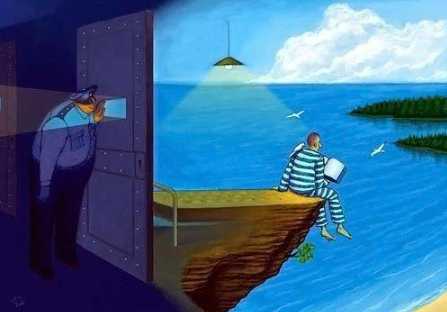Creative writing workshops: A vehicle for storytelling in prison.
- Rocío García

- 24 mars
- 3 min de lecture
Dernière mise à jour : 26 mars
Storytelling is intrinsic to human beings; we’ve been doing it since the beginning of time.
Stories are not only a form of entertainment but also a way in which we can process feelings or engage with each other, relating to common experiences and partaking in community.

The sense of belonging is often impaired in prison as a further punishment for the crimes committed.Loneliness and isolation can have serious effects on our health.
Emotionally, isolation has been associated with higher conflictivity and an increased risk of suicide.
This happens as isolation is a known stressor, in addition to being one of the most prevalent causes of mental health issues (Lobel & Smith, 2019).
Physically, some research suggests that those who suffer from sustained social isolation have an increased risk of hypertension, chronic cardiovascular diseases, and early mortality (Lobel & Smith, 2019).
One way to reduce the negative effects of isolation is through educational programs or workshops.
This is where storytelling is a useful tool. Workshops and lectures on creative writing allow inmates to gain a sense of self and to use their voice.
It is a safe way to explore feelings and to reflect on the past while also being a great way for inmates to find common ground.
Which was proven a successful method to allow inmates to connect with their communities with projects such as the Prison Story Project in Arkansas, Kansas, Missouri, Nebraska, Oklahoma, and Texas.
During this project, inmates received workshops in poetry, creative writing, literature, songwriting, and visual art, allowing them to connect with their stories through creative means (Prison Story Project, 2020).
Moreover, with the rise of online education oriented to lifelong learning, creative writing workshops can be delivered online.
This was already implemented in the HM Prison Thameside and the HM Prison Pentonville, both in London, by Melanie Whipman.
She had previously delivered in-person workshops working with prisoners, and while she was worried about the engagement in a remote format, she was pleasantly surprised with the semi-autobiographical narratives relayed by the inmates (Whipman, 2021).
Nevertheless, these sorts of community-based programs are more effective when delivered by peers (Brosens et al., 2024).
In this sense, certain inmates can be chosen to participate in programs where they are taught the basics of educating and tutoring their peers in storytelling.
This allows for the workshop to be replicated through multiple prisons without it being necessary to deploy a teacher.
Additionally, storytelling can be a useful tool for rehabilitation.Prison-based rehabilitation programs are most effective when they are based on a catered experience for the offender and his situation (UNODC, 2020).Creative writing workshops allow inmates to analyze their situation, past behavior, and trauma and gain conflict resolution strategies through the use of storytelling.
In conclusion, workshops on storytelling should be implemented in as many prisons as possible as their positive impact on inmate lives is undeniable.These workshops can be implemented in a variety of ways, be it in-person, remotely, or by employing peer-to-peer techniques.
References
Brosens, D., Marynissen, S., & De Donder, L. (2024). Effectiveness of peer learning and peer support in prison: A realist-inspired review of outcomes, mechanisms, and contextual factors. In Unlocking learning: International perspectives on education in prison (pp. 247–273). Brandeis University Press.
Lobel, J., & Smith, P. S. (2019). Solitary confinement: effects, practices, and pathways toward reform. Oxford University Press.
Prison Story Project. (2020, May 8). Prison Story Project | Prison Story Project. Prison Story Project. https://www.nwaprisonstories.com/
UNODC. (2020). The Prevention of Recidivism and the Social Reintegration of Offenders. https://www.unodc.org/documents/justice-and-prison-reform/18-02303_ebook.pdf
Whipman, M. (2021). PRISON WORKSHOPS. Melanie Whipman. https://www.melaniewhipman.com/prison-workshops.html






Great article! It is amazing to see case studies where storytelling has been applied to rehabilitation. This article is proof that, storytelling as a tool for rehabilitation has great potential!